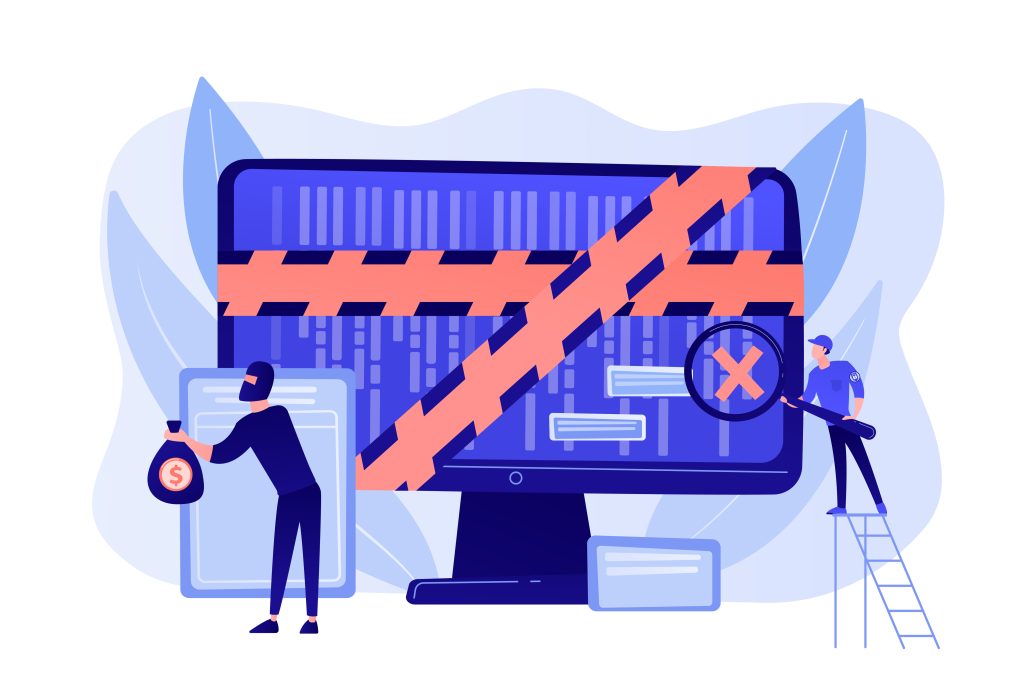
Private Internet users hardly think about what proxy servers are for. Although they are necessary for secure work on the Internet, preserving anonymity, bypassing blocking, and saving personal data. With the help of proxy services you can optimize traffic, run an advertising campaign, collect statistics to promote a website. Corporate clients pay more attention to these proxy functions.
Technically a simple solution is an intermediate proxy server, the functions of which are to mediate between the device and the Internet. With its help, a person connects to the desired site or service not directly, but through an auxiliary server that changes the user’s IP address to his own. As a result, the web page reads the parameters of the proxy, and the information about the user remains classified.
This is a small fraction of the tasks that can be accomplished with proxy. The publication answers the questions why proxies are needed, what they are, what are their differences and why businesses need fast mobile proxies.
What is a proxy server?
There are millions of websites on the Internet that accumulate information about visitors. Experienced users do not ask why to use proxies They know the price of anonymity in the network.
Security of personal and corporate information, preservation of privacy are necessary in business and private life. Replacing a user’s IP address with a similar parameter of a proxy server does not allow hackers, government agencies, Internet providers:
- calculate the region;
- create a “portrait” based on the analysis of visited sites;
- block or restrict access to web resources;
- steal personal and financial information.
The function of a proxy server is not only to mediate between the user’s browser and the application (Internet site). What else do you need it for?
Main functions of a proxy server
There are many of them, although not all users are aware of them. Some of the proxy’s work is invisible. Site visitors do not suspect that their Internet protocol address is protected by an invisible proxy server.
The main tasks of a proxy server are:
- preserving anonymity when sending personal information on the Internet and browsing the web;
- circumventing restrictions and blockades imposed by:
- countries with strict censorship;
- companies wishing to restrict staff access to the internet;
- parents controlling the content that reaches their children;
- filtering malicious traffic, protecting against hacker attacks;
- in strengthening the stability of a personal or corporate computer network.
Why do companies need a proxy server? Web application testers evaluate their performance in multiple geolocations, connecting from different IP addresses. Hotels, restaurants, shopping centers, and clinics use proxies to increase the security level of using open Wi-Fi networks.
System administrators, sales managers, marketers and SEO specialists use basic proxy server functions to:
- analytical data collection;
- parsing data from websites;
- caching of necessary web pages for fast loading;
- market research and analysis of competitors’ sites;
- bypassing restrictions when creating several free accounts on marketplaces and social networks;
- sending advertisements from different accounts.
That’s why you need a proxy server – a stealthy helper and protector of your personal data on the Internet.
Online anonymity
Anonymizers – proxy servers that guarantee untraceability of a person’s actions in the Internet space – play an important role in users’ online activity. They hide geolocation and personal information of the user and keep his requests to websites anonymous. To evaluate the effectiveness of the chosen service, you can use proxy checker – an online service with data input for checking proxies.
The principle of proxy operation is based on mediation between a client and an Internet site. By replacing the user’s Internet protocol address with the IP address of the proxy server, anonymity is preserved when visiting websites, using mobile applications and online services. The scheme of operation consists of several consecutive processes:
- the client sending a request to a web resource;
- the proxy server intercepts it;
- sending a request to a web resource with IP address replacement;
- receiving the response and forwarding it to the client.
In this scheme, the client’s IP address is not visible to the website, which prevents location determination. Proxy server functions include removing identification information, geolocation from the user’s request. This gives a higher level of anonymity. Proxy services of different technical complexity and cost guarantee users complete privacy and security. A good level of protection is provided by OpenVPN Windows server.
Traffic optimization
A correctly chosen proxy does not reduce the speed of information transmission, which goes against popular opinion. Many modern services optimize traffic – increase the speed of Internet connections, load the necessary pages instantly. The Internet slows down when using weak free versions of the service with limited bandwidth. Premium services have a caching function that reduces the download time. It guarantees the user good internet speed and stable connections.
The quality of traffic depends on the configuration and settings. The right choice of service provider, type of proxy server, its qualitative configuration will ensure good speed, anonymity and security of information transfer. Usually users choose between HTTP and SOCKS protocols. The former handles only network traffic, while the latter is used for all types of web traffic.
Access control
What you need a proxy for is traffic balancing. It distributes the load in the network, restricting access to different parts of it. It works as a gateway, blocking access to sensitive data and services. Restrictions can be configured for both company personnel and external users.

Why use a proxy?
IP address masking combined with the above proxy features raises the anonymity and security of the Internet to a higher level.
Why proxy servers are needed:
- to optimize the operation of personal computers, computer networks and servers;
- to ensure secure use of the Internet;
- to protect the actual IP address and other personal information of an individual or corporate user;
- to ensure fast loading of Internet pages and stable connections.
Solving the above tasks is important to all customers, regardless of the purpose for which they use the Internet.
Improved security
Proxy servers act as an intermediary between visitors and websites. They are a router that is a gateway separating a person from a web page. Visiting websites involves a certain amount of danger.
Proxies are increasingly used in corporate networks as an SSL gateway. With it, responses to external user requests do not threaten to reveal the structure of the network. Without proxy services, the request would go directly to the main server. The response to a proxy-mediated request could provide attackers with information about how the network works and what its weaknesses are. The mediation of proxy services is of great importance in preventing information leakage, hacking, hacker and virus attacks.
For security purposes, resident proxies are used. These are IP-addresses issued to users by a service provider in a particular city or region and fixed in the official Internet registry (RIR). If you use them correctly, you can make requests to the network that are indistinguishable from those made by real clients. This type of proxy servers has become an effective method of competitive struggle. It is used for scraping data from competitors’ sites, bypassing anti-bot systems, and other purposes.
Bypassing blockades
Every computer on the Internet has its own IP address. The website the user visits reads it. If for some reason the security system considers the visit undesirable, the user’s IP address is blocked. How does a proxy server bypass the blocking? This is decided on an individual basis, taking into account the complexity, business area and region.
To bypass the blocking, the proxy server changes the user’s real IP address to a proxy address. In some services, the system sets the auxiliary address automatically. Sometimes it is possible to select the region from which the user supposedly enters the website. The method gives a hundred percent result when bypassing blocking by geodata or a specific IP.

For which tasks are proxies best suited?
They provide an opportunity:
Increase the security of Internet connections. A proxy server serves as a firewall between the user’s computer (network) and the Internet. It protects against hackers, leakage of personal information, financial losses, as it guarantees access control and protection against unauthorized intrusion of intruders.
Make private web browsing more enjoyable. Proxies protect from annoying advertising, filter out requests that are not interesting and harmful to the user. It prevents the collection of information by IP, and makes it impossible to track the user’s activity on the Web.
Overcome geographical restrictions on access to desired content, goods, services. With the help of a proxy server, you can assign yourself an address that belongs to another country. This gives access to content hosted in the selected region, access to which is restricted or prohibited where the client is located.
Strengthen staff discipline at workplaces by blocking access to the Internet. The introduction of restrictions prevents employees from accessing undesirable content. Not being able to access the Internet during working hours will reduce the amount of time lost due to the inability to “hang out” on social networks, marketplaces and other sites.
With the help of proxy servers, private and corporate clients solve a set of tasks related to labor productivity, security of personal information, and comfortable recreation on the Internet.
Conclusion
The importance of proxies for business and private users cannot be overestimated. A proxy server between a user and the Internet solves a range of tasks – from guaranteeing security to preserving anonymity, from bypassing blocking to creating fast and stable Internet connections. It is difficult to choose the right proxy server on your own, because you need to take into account the peculiarities of work. It is better to contact specialists to ensure that the proxy server corresponds to the parameters of the corporate network.









